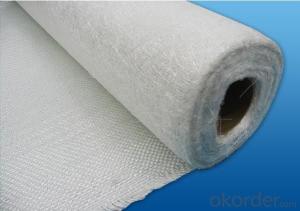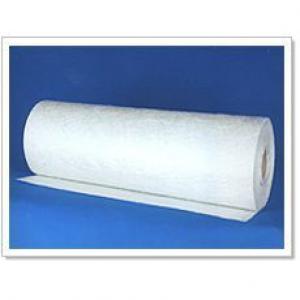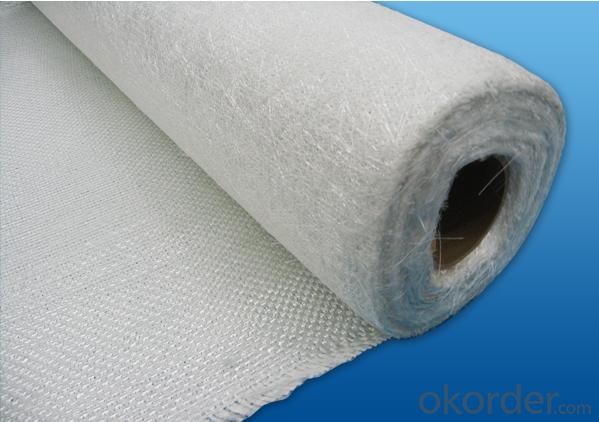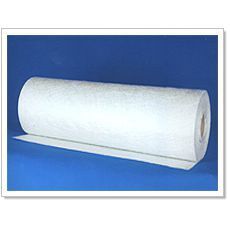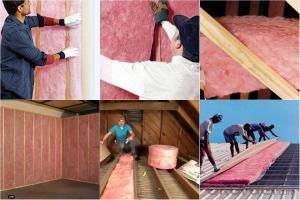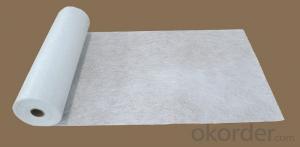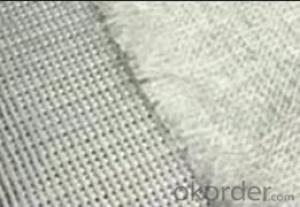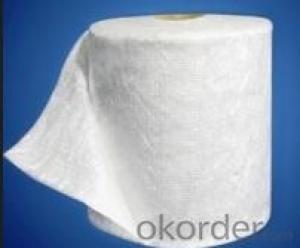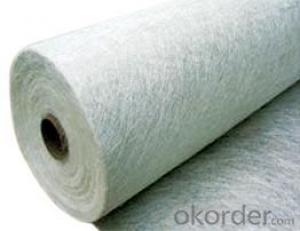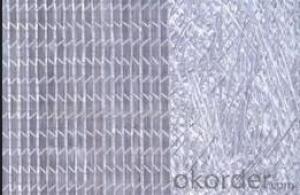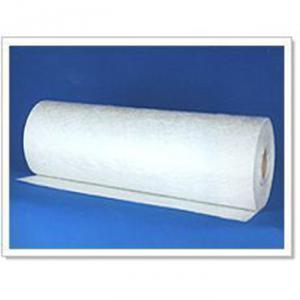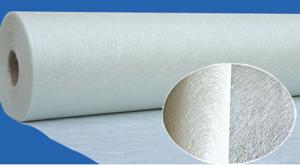Fiberglass Mat Tissue Fiberglass Woven Roving Combo Mat 1700gsm
- Loading Port:
- Shanghai
- Payment Terms:
- TT or LC
- Min Order Qty:
- 20000 kg
- Supply Capability:
- 200000 kg/month
OKorder Service Pledge
OKorder Financial Service
You Might Also Like
Description
Fiberglass stitch combo mat is the mat combining the woven roving and a even layer of chopped strand mat with polyester yarn.
Main Features of the woven roving combo mat
Fiber level unfolded without cross, high density, high utilizing rate.
Multi-layer finished one time, decrease layer and enhance efficiency.
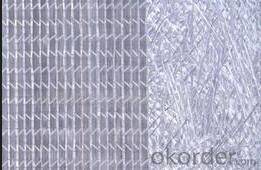
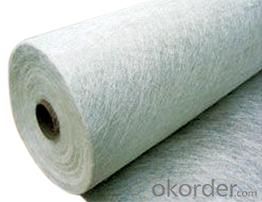
Woven Roving Combo Mat Specification
| ||||||||||||||||||||||||||||||||||||||||||||||||||||
FAQ
Packaging:
Each roll is wound onto a paper tube which has an inside diameter of 76mm and the roll has a diameter of 275mm. The roll is wrapped up with plastic film,and then packed in a cardboard box or wrapped up with kraft paper. The rolls can be horizontally placed. For transportation, the rolls can be loaded into a cantainer directly or on pallets.
Storage:
Unless otherwise specified, It should be stored in a dry, cool and rain-proof area. It is recommended that the room temperature and humidity should be always maintained at 15℃~35℃ and 35%~65% respectively.
- Q: Can fiberglass mat tissue be used for flooring insulation?
- No, fiberglass mat tissue is not typically used for flooring insulation. Fiberglass mat tissue is a lightweight material often used in the construction industry for applications such as reinforcing plaster and concrete, as well as for insulation in walls and ceilings. However, when it comes to flooring insulation, other materials such as foam boards or batt insulation are more commonly used. These materials provide better thermal and sound insulation properties specifically designed for flooring applications. Additionally, foam boards and batt insulation are easier to install and are better suited to withstand the pressures and demands of foot traffic on the flooring.
- Q: Can fiberglass mat tissue be used for insulation in cold environments?
- Yes, fiberglass mat tissue can be used for insulation in cold environments. It has excellent thermal insulation properties and is commonly used in construction to provide insulation against cold temperatures.
- Q: What are the typical dimensions and roll sizes of fiberglass mat tissue?
- Fiberglass mat tissue dimensions and roll sizes may vary depending on the product and manufacturer. Typically, rolls of fiberglass mat tissue come in widths ranging from 1 to 6 feet and lengths ranging from 100 to 1000 feet. The thickness of the tissue can range from 0.5 to 1.5 millimeters. Certain manufacturers may provide tailored sizes and lengths to meet specific project needs. To obtain the precise dimensions and roll sizes of fiberglass mat tissue, it is advisable to consult the manufacturer or supplier.
- Q: How is fiberglass mat tissue made?
- Fiberglass mat tissue is made by combining thin strands of glass fibers with a binder material, such as polyester or acrylic, to form a non-woven fabric. These glass fibers are typically manufactured through a process called pultrusion, where molten glass is pulled through tiny openings to create continuous filaments. The filaments are then chopped into shorter lengths and dispersed randomly onto a moving conveyor belt. As the fibers move along the conveyor, the binder material is sprayed onto them to ensure adhesion and form a cohesive mat. The mat is then heated to cure the binder and solidify the structure, resulting in a strong and flexible fiberglass mat tissue.
- Q: Can fiberglass mat tissue be used for pipe wrapping?
- Yes, fiberglass mat tissue can be used for pipe wrapping. It provides excellent insulation, strength, and corrosion resistance, making it a suitable material for protecting pipes from external elements and preventing leakage.
- Q: Is fiberglass mat tissue resistant to UV degradation?
- Yes, fiberglass mat tissue is generally resistant to UV degradation. The material is designed to withstand exposure to sunlight and does not easily degrade or deteriorate due to UV radiation.
- Q: Is fiberglass mat tissue suitable for insulation in industrial applications?
- Indeed, fiberglass mat tissue proves to be a suitable option for insulation in industrial settings. With its lightweight and flexible nature, this material showcases exceptional thermal insulation properties. Its ability to efficiently trap and retain heat makes it highly advantageous for insulating industrial machinery and equipment. Moreover, it exhibits commendable fire resistance characteristics, which are particularly critical in environments where fire hazards are more prevalent. Additionally, fiberglass mat tissue demonstrates resistance against corrosion, moisture, and chemicals, ensuring its durability and longevity when employed in industrial applications. Overall, this material's insulation capabilities, fire resistance, and ability to withstand various environmental elements establish fiberglass mat tissue as a suitable choice for industrial insulation needs.
- Q: What is the thermal stability of fiberglass mat tissue?
- The ability of fiberglass mat tissue to endure high temperatures without significant degradation or loss of physical properties is referred to as its thermal stability. Fiberglass mat tissue is typically crafted from woven or non-woven glass fibers, renowned for their exceptional resistance to heat. Depending on the specific type and composition, fiberglass mat tissue can generally withstand temperatures ranging from approximately 100°C (212°F) to 500°C (932°F). At these temperatures, the glass fibers retain their strength, dimensional stability, and insulation properties. The thermal stability of fiberglass mat tissue holds great importance in diverse applications where exposure to high temperatures is anticipated. For instance, it is commonly employed in the construction industry for insulation purposes in buildings. This is because it has the capability to endure the heat generated by HVAC systems or fire. Furthermore, the thermal stability of fiberglass mat tissue is also vital in industries such as automotive, aerospace, and marine. In these industries, it is utilized for heat shielding, fire protection, and insulation in engine compartments, exhaust systems, and other environments with elevated temperatures. In conclusion, the thermal stability of fiberglass mat tissue establishes it as a dependable and long-lasting material choice for applications necessitating resistance to high temperatures. Its capacity to preserve its properties under extreme heat conditions guarantees enduring performance and safety across various industries.
- Q: Can fiberglass mat tissue be used for thermal insulation?
- No, fiberglass mat tissue is not typically used for thermal insulation. It is primarily used for reinforcing and providing strength to composite materials such as fiberglass sheets or panels. For thermal insulation purposes, other materials such as mineral wool, foam, or cellulose insulation are commonly used.
- Q: Can fiberglass mat tissue be used for interior decoration?
- Fiberglass mat tissue is an excellent option for interior decoration. This versatile material serves multiple purposes and is commonly utilized as a reinforcement for composite materials like fiberglass reinforced plastic (FRP). These materials are often employed to create decorative elements such as panels, wall coverings, and moldings. The fiberglass mat tissue offers a lightweight and durable solution with exceptional strength and resistance to moisture and chemicals. Moreover, it can be easily molded into various shapes and designs, making it a favored choice for interior decoration projects. Furthermore, the fiberglass mat tissue can be coated or painted to match any desired color or texture, enabling a wide array of creative possibilities in interior design.
Send your message to us
Fiberglass Mat Tissue Fiberglass Woven Roving Combo Mat 1700gsm
- Loading Port:
- Shanghai
- Payment Terms:
- TT or LC
- Min Order Qty:
- 20000 kg
- Supply Capability:
- 200000 kg/month
OKorder Service Pledge
OKorder Financial Service
Similar products
Hot products
Hot Searches
Related keywords
